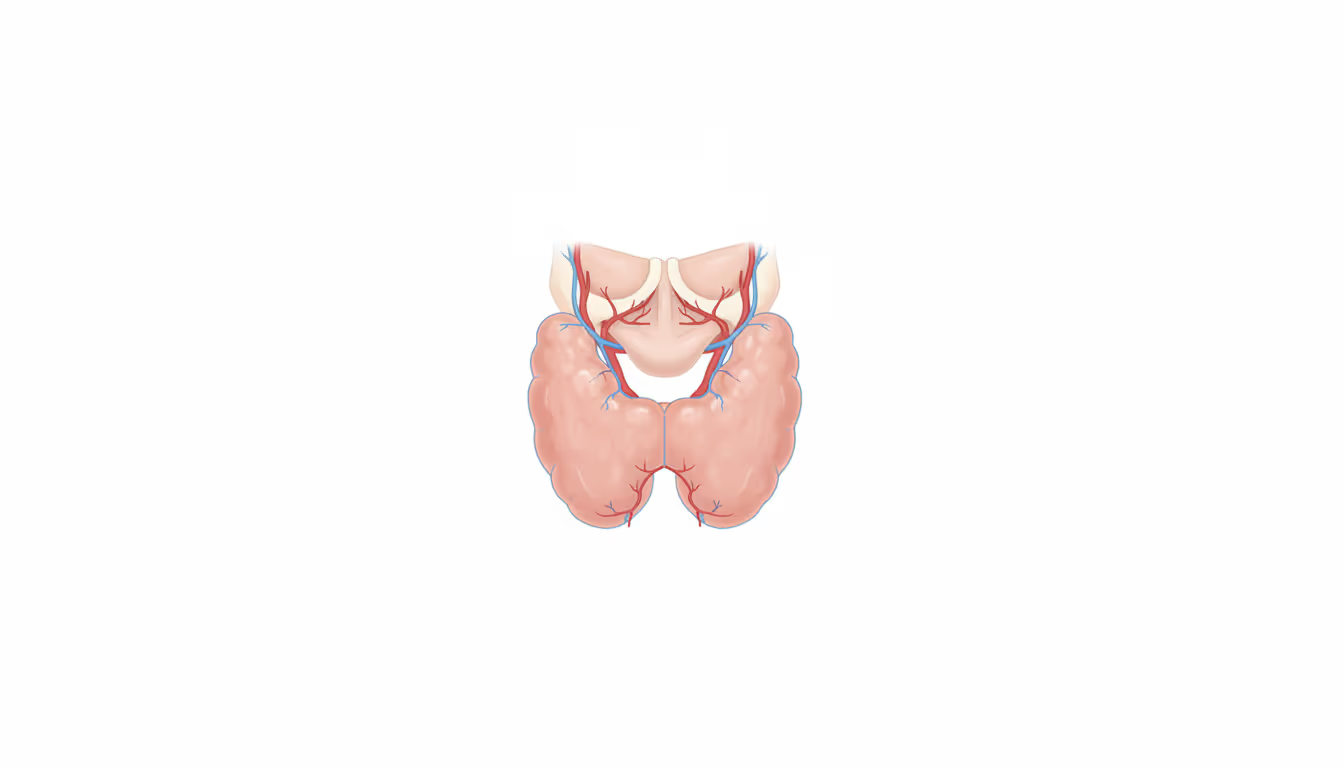
The Thyroid Gland:This gland is responsible for producing and storing hormones that play a crucial role in controlling heart rate, blood pressure, body temperature, and the conversion of food into energy. These hormones are essential for the functioning of every cell in the body, influencing growth and the rate of metabolic reactions. They are also vital for the growth and development of children.Situated in the lower part of the neck, beneath the Adam's apple and encircling the trachea (windpipe), the thyroid gland resembles a butterfly, with two lobes connected by a central section known as the isthmus.To produce its hormones, the thyroid gland utilizes iodine, a mineral present in certain foods and iodized salt. The two primary hormones it produces are thyroxine (T4) and triiodothyronine (T3). The production of these hormones is stimulated by Thyroid Stimulating Hormone (TSH), which is secreted by the pituitary gland. Additionally, the thyroid gland produces calcitonin, a hormone that participates in calcium metabolism by promoting the incorporation of calcium into bones.For further information, refer to entries on Calcitonin, Hyperthyroid conditions, Thyroid Stimulating Hormone, Thyroxine, and Triiodothyronine.




